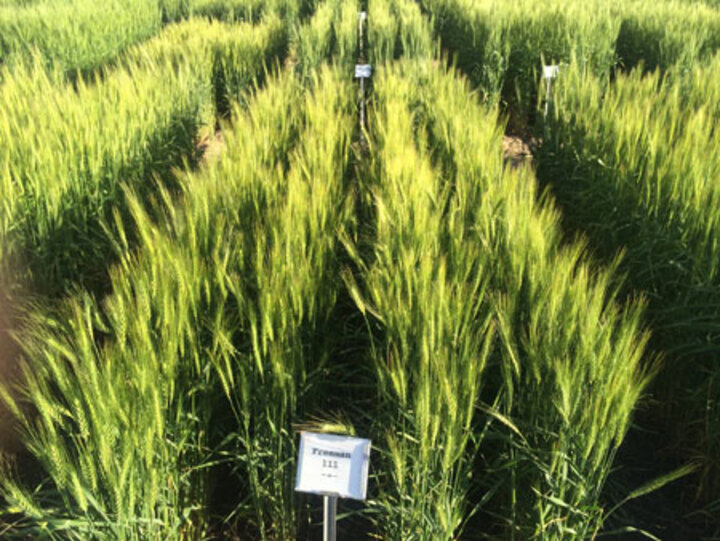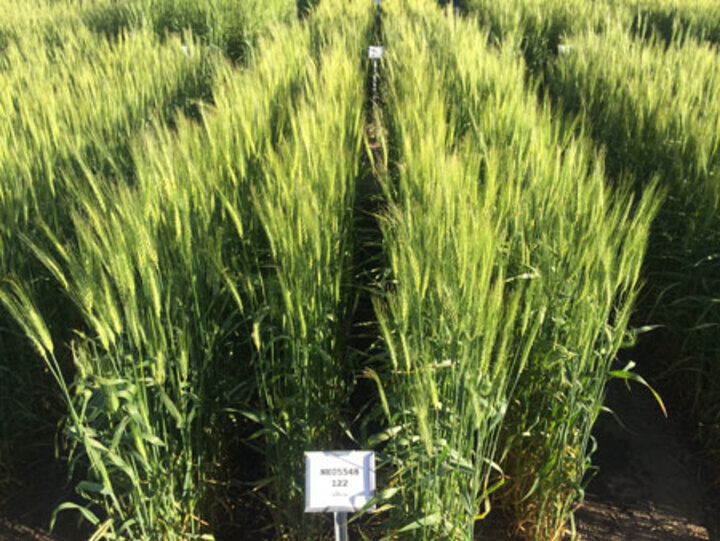A USDA-ARS – University of Nebraska collaboration released two new wheat varieties — Husker Genetics Freeman Brand and NE05548 (Husker Genetics Brand Panhandle) — in 2013-2014. Both varieties will have limited seed available this fall for planting.

Husker Genetics Freeman Brand wheat was derived from a cross of KS92-946-B-15-1 and Alliance.

Freeman (formerly tested as NE06545) was derived from the cross: KS92-946-B-15-1/Alliance. Alliance was an extremely popular wheat variety in the 1990s.
Freeman is resistant to soilborne wheat mosaic virus. It is moderately resistant to stem rust, leaf rust, and stripe rust. It is moderately susceptible to Fusarium head blight and Hessian fly and is susceptible to Barley yellow dwarf virus and wheat streak mosaic virus. It is broadly adapted and recommended for most of Nebraska. Freeman is not recommended for irrigated wheat production due to its average straw strength. The end-use quality of Freeman is acceptable to the milling and baking industry.
Panhandle (NE05548) was derived from the cross: NE97426/NE98574 which had Arapahoe and Rawhide in their pedigrees. Panhandle is an awned, ivory-glumed wheat with a short coleoptile, phenotypically; however, it is a tall wheat that possesses good yield potential and straw strength. It is moderately late in maturity, similar to Overland, and height is approximately 1 inch shorter than Goodstreak.
Panhandle is resistant to Soilborne wheat mosaic virus and stem rust. It is moderately susceptible to leaf rust and stripe rust and susceptible to barley yellow dwarf virus and wheat streak mosaic virus. Panhandle, as would be suggested by its name, is adapted to the Nebraska Panhandle where growers need tall wheat varieties for dryland production for easy harvest during drought. Panhandle's height precludes it from irrigated production unless there is a premium for straw. The end-use quality of Panhandle is acceptable to the milling and baking industry.
Both of these new varieties are intended to complement the many excellent varieties developed by our's and other public and private institutions. They provide the Nebraska wheat grower with additional choices to efficiently produce high quality wheat for our many customers.
